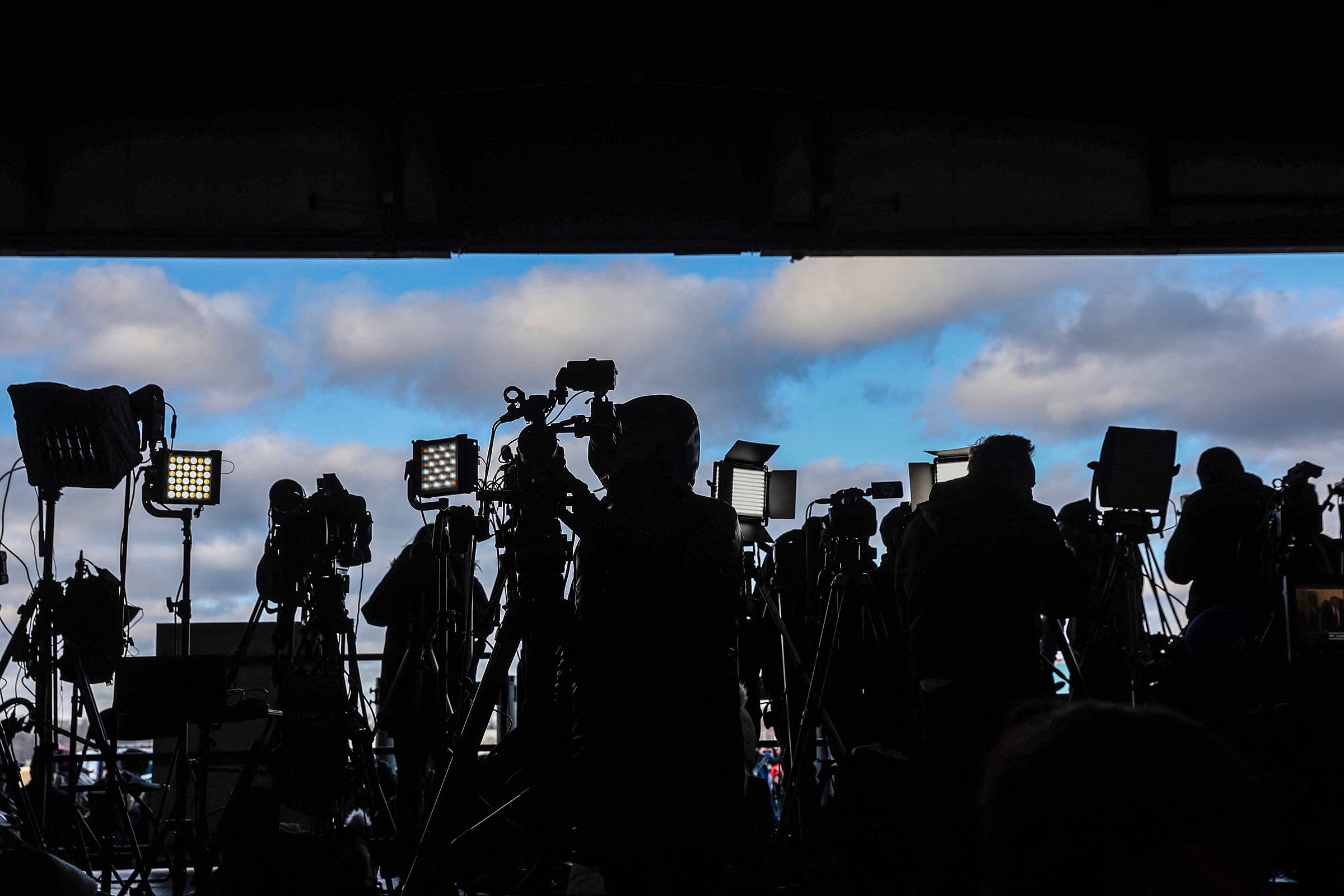
What does it tell us, my students ask, that nine years after Donald Trump oozed down the golden escalator and into contention as Leader of the Free World, the American press, mainstream edition, is still arguing about how to cover him?
Once the charge was that he gets millions of dollars in free media because reporters obsessively overcover him; now it’s that he gets a free ride because they have outrage fatigue. If you fact-check his lies, you risk spreading them further; if you don’t, you are normalizing nonsense. Round and round the arguments go, especially now that reporters must weigh how to cover the first criminal trial of a former President, a campaign conducted from a courtroom where voters once again are judge and jury.
James Madison defended even a young, sloppy, partisan press as a “great bulwark of liberty” and you can feel in the growing attacks on press performance an urgent, underlying “do better; this election is too important to screw up.” Conservatives for years have flayed the “lamestream” press as arrogant and agenda-driven but political independents' faith in the media has also dropped rather precipitously and according to Gallup, for the first time more Americans say they have no trust at all in the press than say they have a great deal or a fair amount.
Read More: Is America in Decline?
In fact, these days the most indignant denunciations of the mainstream political press often come from the left (though this could be because so many on the right have stopped watching and reading). Critics who charge reporters with “false equivalency” and “bothsidesism” condemn reporters for performing objectivity rather than practicing it, for normalizing depravity and numbing the audience to each shattered norm. Now that we experience politics in surround sound, inescapable and all-consuming, it’s little wonder researchers are tracking “news avoidance,” a rational response to coverage that people say feels disconnected from their lives and needs, and leaves them feeling depressed and angry.
The debate over how to cover this campaign reflects in part the challenge of unprecedentedness; have reporters ever faced more new questions than this fateful election presents? Everything from a candidate campaigning from criminal court to the rarity of presidential rematches to the implications of age, the threats of AI, the speed and scale of contagious falsehood, and sadly, the challenge of doing a job whose business model is shredding beneath us makes practical and ethical choices harder. At the very least, these conditions should be enough to chasten the press critics who suggest that the answers are obvious.
Fortunately, while there are few easy answers—we do have to cover the Trump trial and reckon with AI— there are clear opportunities. The core of journalism remains curiosity, with its patient partner, humility. We are seeing things in our politics we’ve never seen before, which is an invitation to explore and inquire and inform, not in perfunctory “diner safaris” but in an open-ended, open-minded conversation with people who hear the same speeches, read the same tweets and truths, and come to wildly different conclusions about what they mean and why they matter.
Research into political division often uncovers mass distortion; we see one another through a glass darkly, exaggerating differences, attributing extreme positions to those who don’t actually hold them. Research by the nonpartisan group More in Common, for instance, drilled down on the radioactive topic of how we teach history. “Many Republicans believe most Democrats want to teach a history defined by shameful oppression and white guilt,” they observed. “Many Democrats believe most Republicans want to focus on the white majority and overlook slavery and racism. But we found that both impressions are wrong.” People at the extremes of left and right are far more likely to post and tweet about politics than the vast center of the electorate, which adds more distortion to the picture.
Read More: The Fantasy of a Lily-White America
The challenge is that even when you tell voters that their political opponents are less extreme than they think, people don’t believe it. In much of our current media landscape, we aren’t likely to encounter the layered worldviews of voters who hold complex, even apparently contradictory views on everything from tax rates to trans rights to GMOs to wind turbines. Reporters perform a true public service when they embed not in campaigns but in communities, capture the trials and trade-offs of small-business owners and caregivers, working parents and police officers, and refocus the lens from the hated horse race to the intimate, immediate information voters need to make decisions about their lives as well as their votes.
One reason local news is far more trusted than national news is that it is simply closer to the facts on the ground. But people don’t only trust it more for the information they need to engage with their communities; they trust it far more for information about how to vote. The collapse of local news outlets—more than two newspapers a week go under on average—puts all the more responsibility on larger regional or national newsrooms to fill in the gaps, deploy reporters creatively, recruit local partners, and present a true picture of the issues most relevant to communities.
Show, don’t tell, as we teach young reporters, and there’s no better time or place than the campaign that promises to shape our fates and fortunes for a generation.
More From TIME
More Must-Reads From TIME
- The 100 Most Influential People of 2024
- How Far Trump Would Go
- Scenes From Pro-Palestinian Encampments Across U.S. Universities
- Saving Seconds Is Better Than Hours
- Why Your Breakfast Should Start with a Vegetable
- 6 Compliments That Land Every Time
- Welcome to the Golden Age of Ryan Gosling
- Want Weekly Recs on What to Watch, Read, and More? Sign Up for Worth Your Time
Contact us at letters@time.com